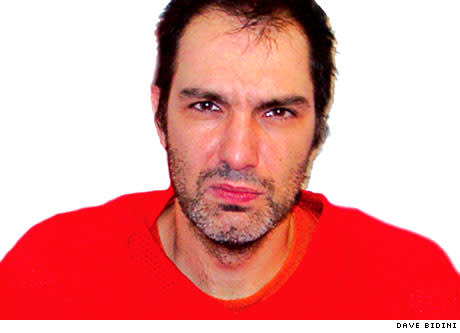Rheostatics guitarist Dave Bidini has built a writing career around himself, chronicling tours with the band, international hockey travels and a summer with an Italian baseball team. His new book, The Best Game You Can Name, uses an Easter weekend spent playing in the annual Exclaim! hockey tournament as a backdrop for an oral history of the game. Bidini uses a single game between his Morningstars and archrivals the Sonic Unyon Pond Squad as a framing device to root into the heart of hockey culture; interspersed with his heroically portrayed account of rec hockey glory are interviews with NHL players Bidini remembers from his rose-coloured childhood watching Hockey Night In Canada. (Of 44 interviewed players, only five played into the 1990s; 25 had stopped playing by 1980.)
This selection is purposeful, allowing Bidini to explore a period of hockey when men were tough and filled with hard luck tales of broken teeth and retaliatory cracked skulls. But what's ironic about the book is that it's framed by the Morningstars' experience at the Exclaim! Cup, a tournament built - by Bidini's team-mate and long-time Exclaim! staffer Tom Goodwin - as an alternative to a hockey-as-street-gang philosophy. The Exclaim! Cup is, in fact, populated by squads of fighting-averse musicians and artists that would likely - in the parlance of Bidini's casual homophobia - get tagged as "a bunch of fags."
Despite the book's title, readers unconvinced of hockey's inherent glory get no sales pitch here; the greatness of Canada's sports legacy is a given. Instead, Bidini links himself to the longstanding legacy of hockey toughs interviewed in the book, gleefully relating anecdotes like picking out an overweight opponent as an easy target for taunting. ("Where's the snack bar, fatty?") This neanderthal attitude cuts both ways; it's perfect for fans of Don Cherry-style hockey that are, to be sure, the book's target audience. But for many Exclaim! Cup participants, Bidini's portrayal may represent exactly what drove them from hockey's hallowed rinks in the first place, only to return to the E! Cup's loving embrace.
This selection is purposeful, allowing Bidini to explore a period of hockey when men were tough and filled with hard luck tales of broken teeth and retaliatory cracked skulls. But what's ironic about the book is that it's framed by the Morningstars' experience at the Exclaim! Cup, a tournament built - by Bidini's team-mate and long-time Exclaim! staffer Tom Goodwin - as an alternative to a hockey-as-street-gang philosophy. The Exclaim! Cup is, in fact, populated by squads of fighting-averse musicians and artists that would likely - in the parlance of Bidini's casual homophobia - get tagged as "a bunch of fags."
Despite the book's title, readers unconvinced of hockey's inherent glory get no sales pitch here; the greatness of Canada's sports legacy is a given. Instead, Bidini links himself to the longstanding legacy of hockey toughs interviewed in the book, gleefully relating anecdotes like picking out an overweight opponent as an easy target for taunting. ("Where's the snack bar, fatty?") This neanderthal attitude cuts both ways; it's perfect for fans of Don Cherry-style hockey that are, to be sure, the book's target audience. But for many Exclaim! Cup participants, Bidini's portrayal may represent exactly what drove them from hockey's hallowed rinks in the first place, only to return to the E! Cup's loving embrace.
